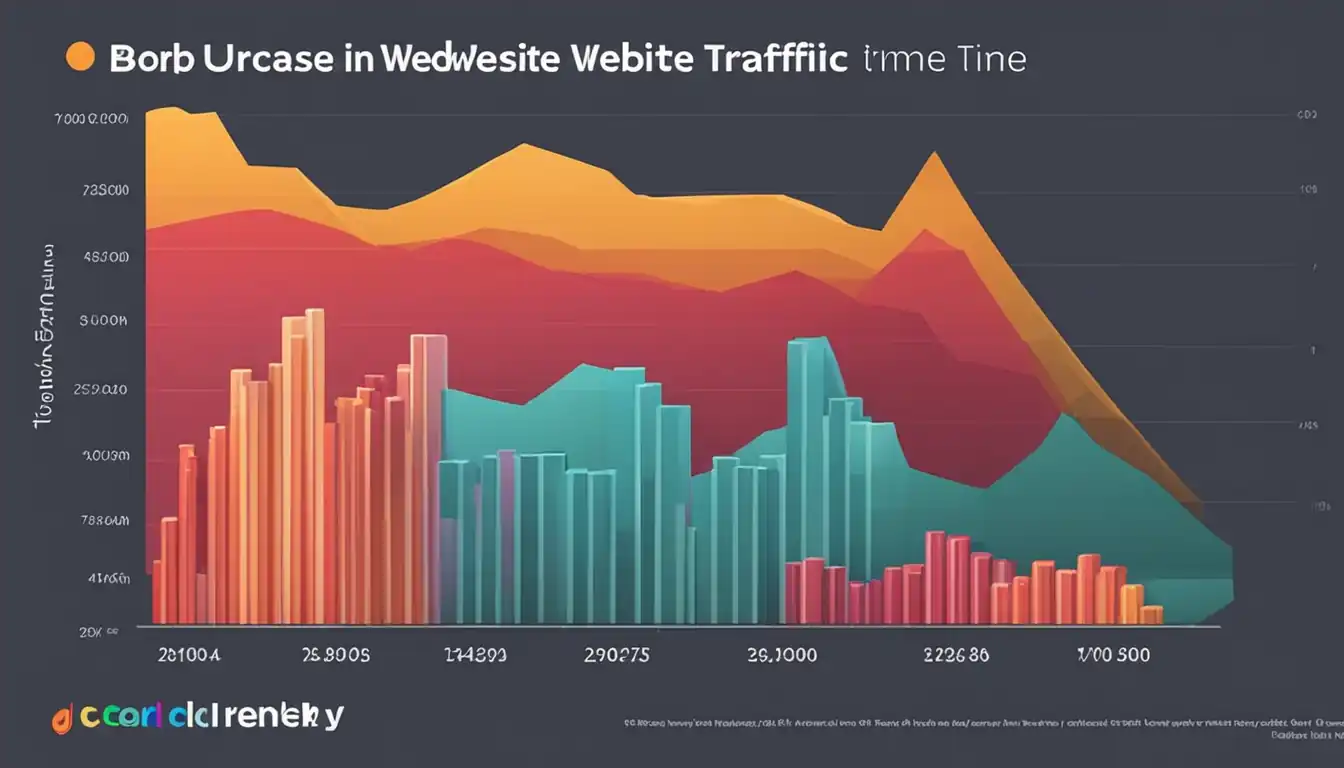SEO Content Data-Driven Strategies: Mastering the Art of Search Engine Optimization

In the ever-evolving world of digital marketing, mastering the art of search engine optimization (SEO) is essential for businesses looking to increase their online visibility. One crucial aspect of SEO that often gets overlooked is the role of data-driven strategies in content creation. By harnessing the power of data analytics, SEO professionals can gain valuable insights into user behavior and preferences, ultimately leading to more effective content that ranks higher on search engine results pages.
Understanding the Role of Data in SEO Content Creation

In the world of search engine optimization (SEO), data plays a crucial role in shaping content strategies and driving results. By leveraging data-driven insights, businesses can create more targeted and effective content that resonates with their target audience and improves their search engine rankings.
How Data Influences SEO Tactics
Data serves as the foundation for successful SEO strategies, guiding decisions on keyword selection, content topics, and optimization techniques. By analyzing metrics such as search volume, competition levels, and user intent, marketers can identify opportunities to create high-quality content that meets the needs of both users and search engines.
Key ways in which data influences SEO tactics include:
Keyword Research: Data-driven keyword research helps identify relevant terms and phrases that users are searching for, allowing businesses to optimize their content for maximum visibility.
Content Optimization: Analyzing performance metrics such as click-through rates and bounce rates can help marketers fine-tune their content to improve engagement and conversions.
Competitor Analysis: By studying competitors' strategies and performance data, businesses can uncover valuable insights to inform their own SEO efforts.
Turning Analytics into Actionable Insights
While collecting data is important, the real value lies in turning that data into actionable insights that drive results. This requires a strategic approach to analytics that goes beyond simply tracking metrics to understanding what those metrics mean for your SEO strategy.
Some key steps for turning analytics into actionable insights include:
Setting Clear Goals: Define specific objectives for your SEO efforts, such as increasing organic traffic or improving conversion rates.
Measuring Performance: Use tools like Google Analytics to track key performance indicators (KPIs) related to your goals.
Analyzing Trends: Look for patterns and trends in your data to identify areas of opportunity or improvement.
Iterating on Strategies: Use insights from your analytics to refine your SEO tactics over time and continuously improve performance.
By following these steps and leveraging data-driven strategies, businesses can master the art of search engine optimization and achieve sustainable success in today's competitive digital landscape.
Key Data Metrics Essential for Effective SEO Content

In order to master the art of search engine optimization, it is crucial to understand and utilize key data metrics that can guide your content strategy. By tracking user engagement and behavior, as well as analyzing keyword performance, you can create content that resonates with your target audience and ranks well on search engines.
Tracking User Engagement and Behavior
Tracking user engagement and behavior on your website is essential for optimizing your content for search engines. By monitoring metrics such as bounce rate, time on page, and pages per session, you can gain valuable insights into how users interact with your content. This data can help you identify areas for improvement and tailor your content to better meet the needs of your audience.
The Importance of Keyword Performance Analysis
Keyword performance analysis is another critical aspect of SEO content strategy. By analyzing the performance of keywords in terms of search volume, competition, and relevance to your target audience, you can optimize your content to rank higher in search engine results. This data-driven approach ensures that your content is aligned with the terms and phrases that users are searching for, increasing its visibility and driving organic traffic to your website.
Tools and Technologies for Gathering SEO Data
In the world of SEO, data is king. Without the right tools and technologies to gather and analyze data, it can be challenging to create a successful content-driven SEO strategy. Here are some must-have tools for every SEO professional:
Must-Have Tools for Every SEO Professional
- Google Analytics: This free tool provides valuable insights into website traffic, user behavior, and more.
- Google Search Console: Another free tool from Google that helps monitor website performance in search results.
- SEMrush: A comprehensive SEO tool that offers keyword research, backlink analysis, and more.
- Ahrefs: Known for its robust backlink analysis capabilities, Ahrefs is a must-have for any SEO professional.
- Moz Pro: Offers a suite of tools for keyword research, site audits, rank tracking, and more.
Leveraging AI and Machine Learning in SEO
AI and machine learning have revolutionized the way we approach SEO. By leveraging these technologies, SEO professionals can gain deeper insights into user behavior and search trends. Some ways to incorporate AI and machine learning into your SEO strategy include:
- Content Optimization: Use AI-powered tools to analyze content performance and make data-driven decisions on what content to create or optimize.
- Predictive Analytics: Utilize machine learning algorithms to predict future search trends and optimize your content accordingly.
- Personalization: Leverage AI to deliver personalized content experiences based on user behavior and preferences.
By incorporating these tools and technologies into your SEO strategy, you can master the art of search engine optimization and drive meaningful results for your website.
Crafting Content That Ranks: Applying Your Data Insights
In the world of SEO, content is king. But not just any content will do. To truly master the art of search engine optimization, you need to craft content that is not only high-quality but also data-driven. By leveraging data insights, you can create content that resonates with your target audience and ranks highly in search engine results pages (SERPs). Here are some strategies to help you craft content that ranks:
Creating Content Based on User Intent Analysis
User intent analysis is crucial for creating content that meets the needs and expectations of your target audience. By understanding what users are searching for and why they are searching for it, you can tailor your content to provide valuable information and solutions. This will not only help improve user experience but also increase your chances of ranking higher in search results.
To conduct user intent analysis, start by researching relevant keywords and phrases related to your industry or niche. Use tools like Google Keyword Planner or SEMrush to identify popular search terms and understand user behavior. Once you have a list of keywords, analyze the search intent behind each query – whether it is informational, navigational, transactional, or commercial investigation.
Based on your analysis, create content that aligns with user intent. For example, if users are looking for information about a specific topic, consider writing a comprehensive guide or blog post that addresses their questions and provides valuable insights. If users are looking to make a purchase, create product descriptions or landing pages that highlight the benefits of your offerings.
By aligning your content with user intent, you can attract more qualified traffic to your website and improve your chances of ranking higher in SERPs.
Optimizing Existing Content with Fresh Data
In addition to creating new content based on data insights, it is important to optimize existing content with fresh data regularly. Search engines favor websites that regularly update their content with new information and insights. By refreshing your existing content with up-to-date data, you can improve its relevance and authority in the eyes of search engines.
Start by conducting an audit of your existing content to identify outdated information or statistics. Look for opportunities to update statistics, case studies, examples, or references with the latest data available. You can also add new sections or insights based on recent trends or developments in your industry.
When updating your existing content with fresh data, be sure to maintain consistency in style and tone to ensure a seamless reading experience for users. Additionally, consider repurposing old blog posts into new formats such as infographics, videos, or podcasts to reach a wider audience and drive more traffic to your website.
By optimizing existing content with fresh data regularly, you can keep your website relevant and competitive in search engine rankings while providing value to your audience.
Measuring the Success of Your SEO Strategy
In the world of SEO content, measuring the success of your strategy is crucial to understanding what works and what needs improvement. By tracking key performance indicators (KPIs) and implementing continuous improvement through data feedback loops, you can master the art of search engine optimization.
Key Performance Indicators to Watch
When it comes to monitoring the effectiveness of your SEO content strategy, there are several key performance indicators (KPIs) that you should keep a close eye on:
Organic Traffic: This metric measures the number of visitors coming to your website through organic search results. An increase in organic traffic indicates that your content is ranking well on search engines.
Keyword Rankings: Tracking the rankings of your target keywords is essential for evaluating the success of your SEO efforts. Seeing improvements in keyword rankings shows that your content is optimized effectively.
Click-Through Rate (CTR): CTR measures the percentage of people who click on your website's link after seeing it in search results. A high CTR indicates that your meta titles and descriptions are compelling enough to attract clicks.
Bounce Rate: Bounce rate refers to the percentage of visitors who leave your site after viewing only one page. A high bounce rate may indicate that your content is not engaging or relevant to visitors.
Conversion Rate: Conversion rate tracks the percentage of visitors who take a desired action on your website, such as making a purchase or signing up for a newsletter. Improving conversion rates shows that your content is effective at driving user actions.
Continuous Improvement Through Data Feedback Loops
To truly master SEO content strategies, it's essential to implement continuous improvement through data feedback loops:
"Data feedback loops allow you to analyze performance metrics, identify areas for improvement, and make data-driven decisions to optimize your content strategy."
By regularly analyzing KPIs and user engagement metrics, you can gain insights into what aspects of your SEO strategy are working well and where adjustments are needed. Use this data to refine keyword targeting, improve content quality, and enhance user experience on your website.
Remember, SEO is an ongoing process that requires constant monitoring and adaptation based on data-driven insights. By focusing on key performance indicators and implementing data feedback loops, you can refine your SEO content strategy and achieve long-term success in search engine optimization.
Conclusion
In conclusion, implementing data-driven strategies in your SEO content creation process can make a significant impact on your online presence. By understanding how data influences SEO tactics, tracking key metrics, utilizing the right tools and technologies, crafting content based on insights, and measuring success through performance indicators, you can continuously improve your SEO strategy and stay ahead of the competition. Remember, when it comes to SEO content, knowledge is power - so let data be your guide to mastering the art of search engine optimization.